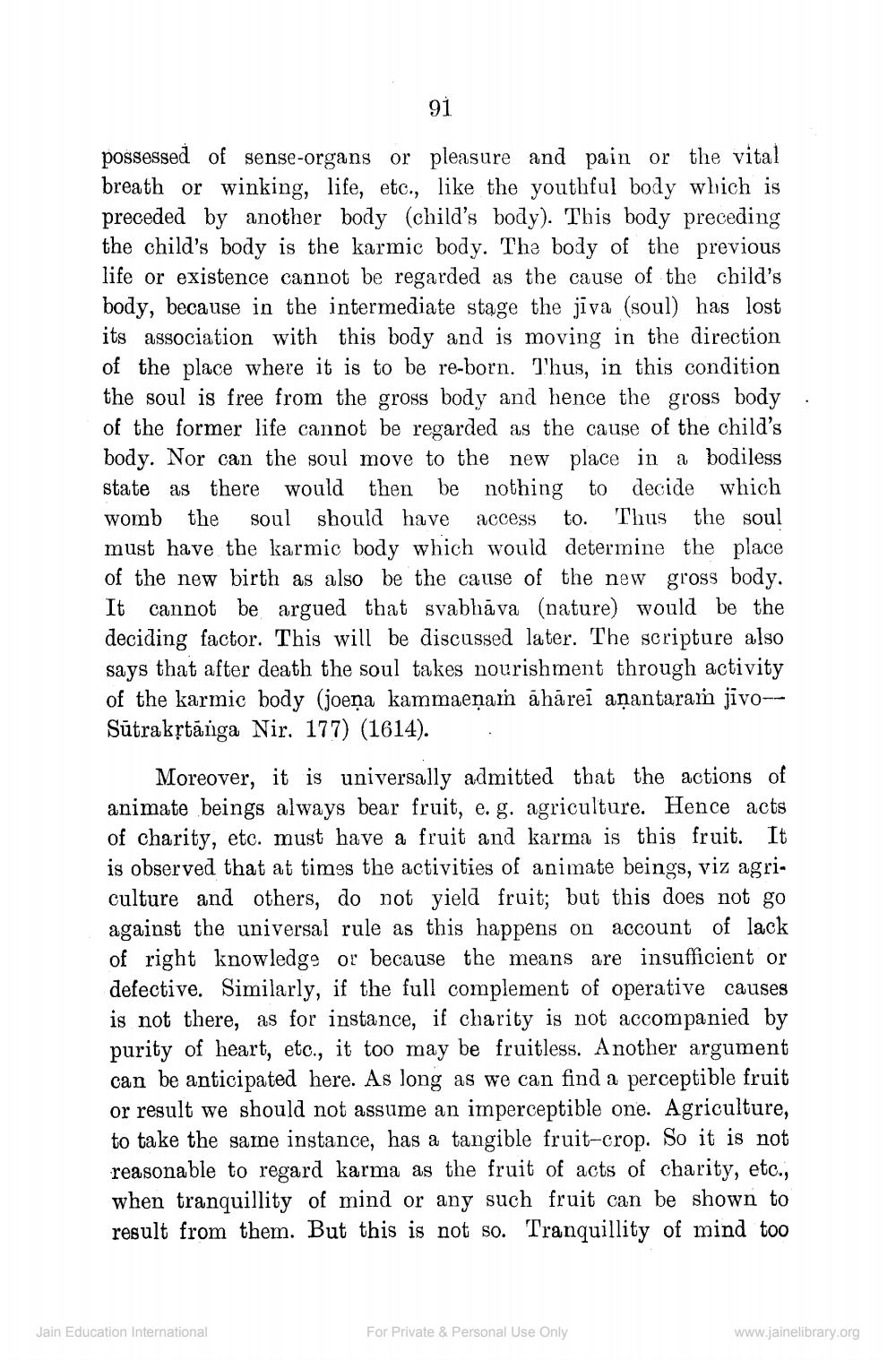________________
91
possessed of sense-organs or pleasure and pain or the vital breath or winking, life, etc., like the youthful body which is preceded by another body (child's body). This body preceding the child's body is the karmic body. The body of the previous life or existence cannot be regarded as the cause of the child's body, because in the intermediate stage the jiya (soul) has lost its association with this body and is moving in the direction of the place where it is to be re-born. Thus, in this condition the soul is free from the gross body and hence the gross body of the former life cannot be regarded as the cause of the child's body. Nor can the soul move to the new place in a bodiless state as there would then be nothing to decide which womb the soul should have access to. Thus the soul must have the karmic body which would determine the place of the new birth as also be the cause of the new gross body. It cannot be argued that svabhāva (nature) would be the deciding factor. This will be discussed later. The scripture also says that after death the soul takes nourishment through activity of the karmic body (joeņa kammaenam āhā rei añantaram jīvo-- Sūtrakřtănga Nir. 177) (1614). .
Moreover, it is universally admitted that the actions of animate beings always bear fruit, e. g. agriculture. Hence acts of charity, etc. must have a fruit and karma is this fruit. It is observed that at times the activities of animate beings, viz agriculture and others, do not yield fruit; but this does not go against the universal rule as this happens on account of lack of right knowledge or because the means are insufficient or defective. Similarly, if the full complement of operative causes is not there, as for instance, if charity is not accompanied by purity of heart, etc., it too may be fruitless. Another argument can be anticipated here. As long as we can find a perceptible fruit or result we should not assume an imperceptible one. Agriculture, to take the same instance, has a tangible fruit-crop. So it is not reasonable to regard karma as the fruit of acts of charity, etc., when tranquillity of mind or any such fruit can be shown to result from them. But this is not so. Tranquillity of mind too
Jain Education International
For Private & Personal Use Only
www.jainelibrary.org




